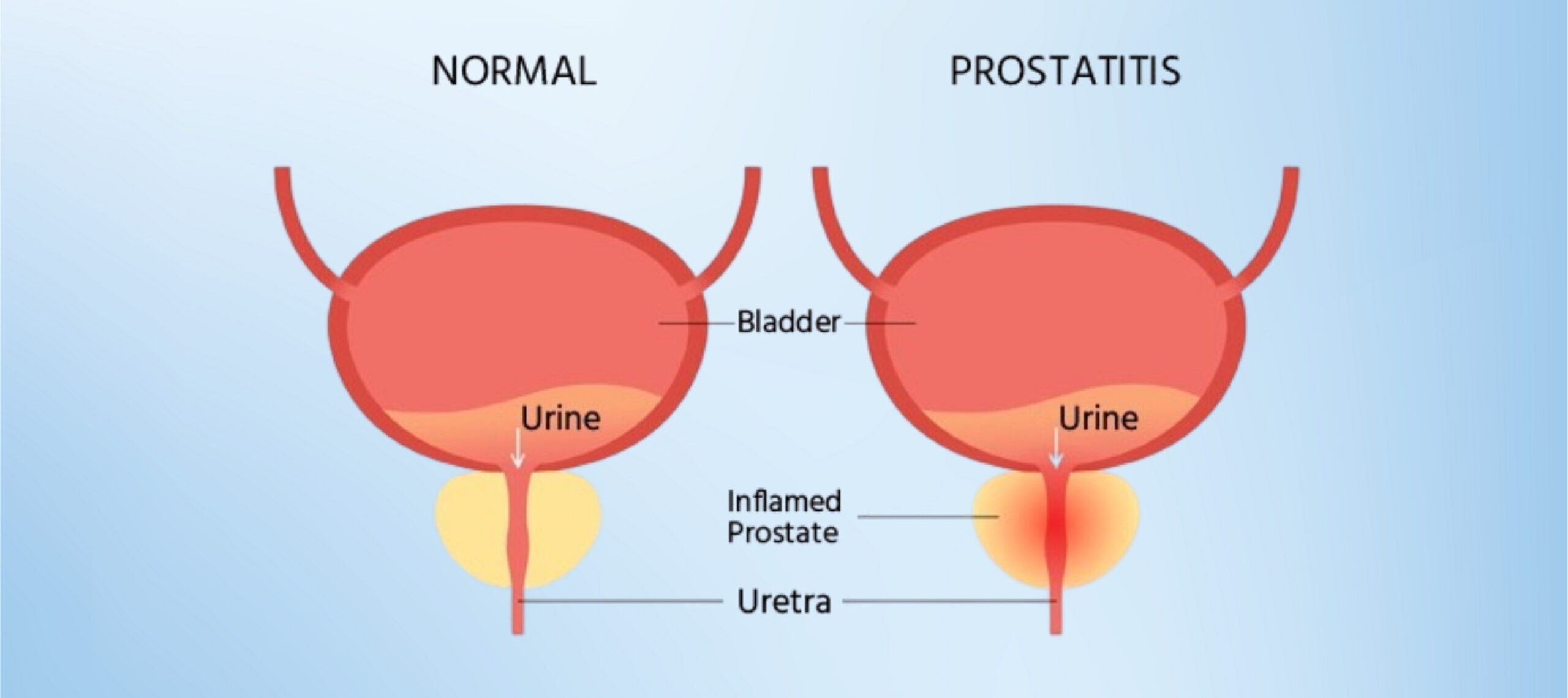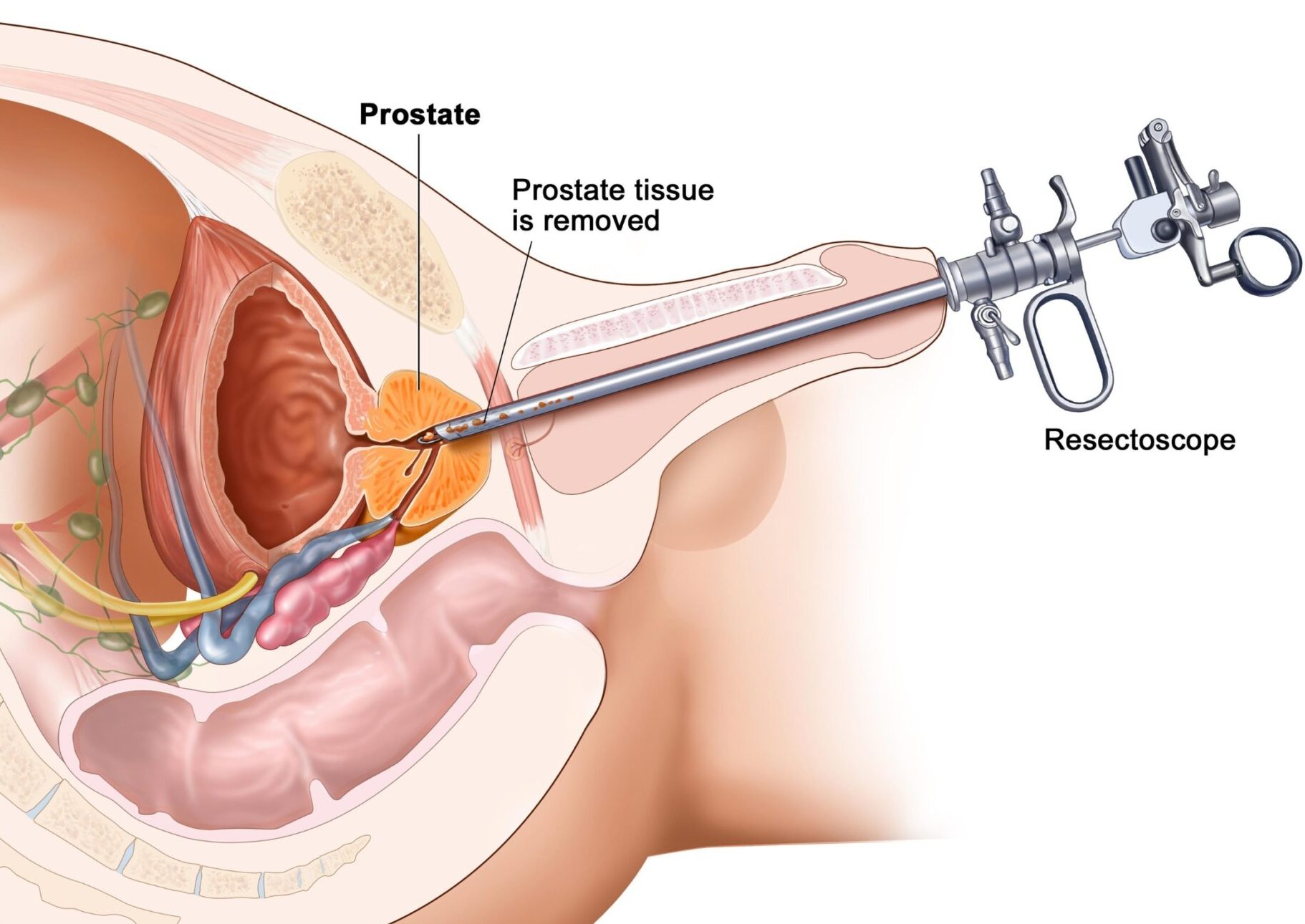Prostatectomy surgery to remove the prostate gland is generally performed in cases of prostate cancer. However, it can become necessary in some other conditions as well. At HeptaCare Health
Happy Patients
Disease
Hospitals
Cities
Prostatectomy is the surgical removal of the prostate gland. In some cases, the surgeons extract the complete gland. However, in other cases, partial removal is considered enough. This procedure can be performed through open, laparoscopic, or robotic techniques, depending upon the requirement of the case. The prostate gland is located in the male pelvis, right below the urinary bladder. This gland surrounds the urethra, and its chief function is to produce a fluid that nourishes the semen and transports it.
Conditions like prostate cancer and benign prostatic hyperplasia or BPH are generally corrected through this procedure. Get in touch with Pristine Care’s expert urologists to get advanced prostatectomy surgery at cost-effective prices.

HeptaCare Health curates an all-around surgical experience for patients through its partnership with the best Prostatectomy hospitals in the country. The treatment hospitals have world-class infrastructure, marked by state-of-the-art technology and all amenities. The properties are well-maintained, and the non-medical staff, in addition to the HeptaCare Health dedicated team, take all measures to keep the patient at ease throughout.
The urologists are highly-trained in performing advanced prostatectomy procedures to ensure minimal surgery discomfort and hassle-free recovery. They constantly level up their treatment techniques through advanced training sessions. Also, they offer specialized care to the patient while being compassionate towards the. Book your appointment with our urologists today.
Prostatectomy is generally divided into:
Radical prostatectomy
This method involves the removal of the entire prostate gland, in addition to the surrounding tissues and lymph nodes. It is usually recommended to patients with prostate cancer, and the risk of metastasis is present.
Simple prostatectomy
This procedure involves the removal of the affected part of the prostate that is obstructing the urethra. This procedure is preferred in the case of BPH. The risk of complications associated with open prostatectomy is much higher, and the recovery period is also much longer. Therefore, that procedure isn’t widely performed.
Diagnostic Tests:
The doctor might suggest the following tests before prostatectomy surgery:
Digital rectal exam (DRE)
In this test, the surgeon inserts a gloved and lubricated finger in the rectum to look for any abnormal growths and the prostate gland’s shape, size, and texture. This helps the surgeon assess the extent of the condition.
This is one of the most accurate and reliable tests for prostate pathology. When the prostate is enlarged, the amount of PSA (a protein made by the prostate gland) increases. Its concentration depends upon the severity of the condition.
In this test, the doctor inserts a visual scope into the urethra and bladder to determine the prostate gland’s size. This is generally performed before the surgery.
An ultrasound for prostatectomy involves inserting a small probe into the rectum. It produces images of the gland that help doctors determine the exact shape and size of the prostate gland.
MRI scans give a more detailed picture of the prostate gland. It is generally suggested if the doctor suspects aggressive prostate cancer.
This is the most accurate test for confirming the presence of prostate cancer. In this test, the doctor collects cells from the prostate cells and studies them under a microscope to determine their cellular structure and confirm or rule out prostate cancer.
Being prepared before prostatectomy surgery helps in having a seamless surgery, and even lowers the risk of complications during and after the surgery. Here are a few things that you should take care of before a prostatectomy:
Procedure
The prostatectomy procedure varies based on the type of technique being used, such as:
Laser Prostatectomy: Laser prostatectomy has several advantages over other techniques, such as it has a lower risk of bleeding, requires short hospital stay, ensures quicker recovery, and so on. In this technique, the doctor inserts a scope through the urethra. A laser is passed through the scope, which delivers energy that shrinks or removes the excess tissue from the enlarged prostate and relieves the symptoms.
This is the most advanced prostatectomy technique, which is performed widely now. In this procedure, the surgeon sits on a remote-control console placed at a distance from the operating table. The motion of the equipment is controlled with two hand-and-finger control devices. The doctor gets a magnified, 3D view of the area to be operated on, which allows them to perform the procedure with greater precision. The surgeon can make smaller and much more accurate incisions, which allows quicker recovery than other methods. This technique involves nerve-sparing methods that help preserve sexual potency and continence in the patient.
Open Radical Prostatectomy: In this technique, the surgeon makes incisions in your lower abdomen, right above your pelvic bone. Upon accessing the prostate gland, the surgeon carefully dissects it from the surrounding nerves and blood vessels. Finally, the gland is removed along with the nearby tissue, and the incision is sealed with sutures.
Open Simple Prostatectomy: The first step of this procedure involves inserting a long and flexible cystoscope (a viewing scope) through the urethra to the bladder and prostate area. Then, the doctor inserts a tube called a Foley Catheter through the tip of the penis, which reaches your bladder to drain it all the urine.
Next, the surgeon will make a large incision below the belly button, right below the navel, and above the pelvic bone to extract the problematic parts of the prostate gland. The final step involves placing some temporary drain tubes through punctures in the skin near the surgery site. These tubes are removed before discharge.

Taking some precautionary measures after the surgery will help you recover much faster. Here’s what you can do to boost your recovery:
Like any other surgery, prostatectomy has its fair share of risks. Listed below are some risks associated with prostatectomy:
Prostatectomy has the following benefits:
The urologists at HeptaCare Health perform prostatectomy procedures with the utmost precision to ensure there are no postoperative complications. They are extensively trained in performing advanced prostatectomy treatments and take all safety measures to keep the risk of complications minimal.


Based on 7721 Recommendations | Rated 4.68 Out of 5
Happy Patients
Clinics
Cities
Surgeries
Doctors
Hospitals
Getting an accurate diagnosis can be one of the most impactful experiences that you can have.

cure with care
Copyright © 2025. All rights reserved.
Consult with our expert surgeon for more than 50+ diseases
Happy Patients
Hospitals
Cities